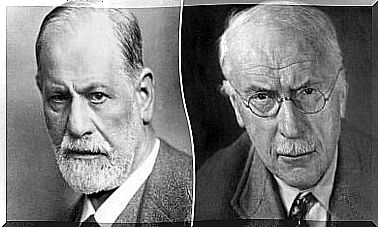Lack Of Time: A New Form Of “poverty” That Hits Us
Lack of time generates gradual and evident psychological suffering. We are almost like that white rabbit from Alice in Wonderland that runs around with a clock repeating over and over: “I’m late, I’m late for a very important appointment, I don’t have time, I don’t have time…”. The feeling that almost everything is always short of hours is already constant in many of us.
Living subject to obligations, a rigid routine and those tasks that extend to the infinite and the unspeakable impose barriers to our well-being and personal growth. Sometimes we are so focused on a kind of reality that we don’t see that around us there are more doors, more worlds and opportunities. Time isn’t money, it’s life, and we end up losing it in many ways.
Our health is slipping away because of that endemic lack of rest, satisfaction, and that psychological well-being that is part of leisure time. We lose existential quota because the years sometimes pass in a sigh and, with them, dreams that can no longer be fulfilled, experiences that we will no longer live in our own skin and, most importantly, we lose moments with the people we love.
Lack of time is already a new form of “poverty”
We have all heard at some point in life that there is no lack of time, there is a lack of interest. It’s true that sometimes this reality can happen. However, in recent years, we have seen a scenario as complex as it is problematic. First, we live in a society that conceives of being “busy” as being “productive”.
From an early age, we integrated the idea that occupying the day with multiple tasks dignifies us. The more you do, the more you are careful not to be idle, as anyone who lets himself rest may be leaving responsibilities aside. All of these ideas have harmed our physical and psychological health for years.
However, in recent times, another factor has been added: working conditions are more complex, and an example of this is telecommuting. This type of work, which still lacks adequate regulation, subjects us (on average) to a situation of high overload in which hours are diluted and may extend beyond the stipulated hours.
If we also add the family and domestic responsibilities, the lack of time is not only evident, it is an overwhelming fact.
the feeling of guilt
We take up most of our hours with work. In addition to these hours, we use the remaining time for unavoidable obligations, such as shopping, taking care of the children or fulfilling other essential tasks. After all that, all that remains is fatigue and the overwhelming desire to go to bed and rest.
When this dynamic is repeated day after day, the feeling of guilt inevitably arises. Guilt for not taking care of ourselves as we would like, for not having more time for our partner, friends, children, pets… Likewise, this feeling also projects itself on us.
We regret the lack of time to do what we like, what identifies us . We postpone escapes, trips, courses that we will never take, books that accumulate and that we won’t be able to read… All these realities undermine self-esteem and undermine our state of mind.
Social networks and the lives we would like to have
Lack of time and its relationship with psychological suffering, in turn, intensify with the use of technology. Although we are almost always busy and with a to-do list to complete, we always find a moment to browse our social networks.
Happiness tends to shine in these virtual universes, images of places we’d like to visit, experiences to live, things to discover, people to meet… These virtual windows can motivate us at certain times, but also sink us. Because this reality is not our reality, because our obligations do not always allow us these escapes, these opportunities…
Lack of time and personal poverty
You can have a great job, have a good salary and still be poor. Because time poverty is another type of emotional, personal and psychological misery that penetrates deeply into today’s society. Let’s think for a moment… a good bank account doesn’t do any good if we don’t have time to enjoy, to rest, to get along…
Lack of time robs us of happiness and also of life. Take, for example, the term karoshi , that Japanese word for people who die from overwork. But be careful, not everyone suffers from this due to burnout or heart or brain attacks. Behind many of these losses are suicides.
How to start buying time to make a living?
Lack of time has a cost to mental health, and this is something that requires change. The complex is that not everything depends on us. The way society and our schedules are articulated does not always allow us to reconcile work with personal life, professional with family, and mandatory with what is desirable.
Research by Dr. Therese Macan of the University of Missouri indicates that time management strategies are not always helpful in these contexts . This may allow us to release some tension, but exhaustion, for example, will still be there.
It is true that a profound reshaping of our lifestyle is needed. However, as far as possible, we can also reflect on some aspects. These would be some ideas:
- Differentiate between the urgent and the important.
- Try to organize the day as soon as you get up, trying to put leisure and rest on the agenda. It’s critical to have an hour or two to do what we like.
- Learn to delegate responsibility.
- Find time during the week to share with family and friends.
To conclude, let us not forget to reflect once more on this idea: lack of time is also poverty, and this kind of emotional and existential misery is also slowly stealing our lives.









